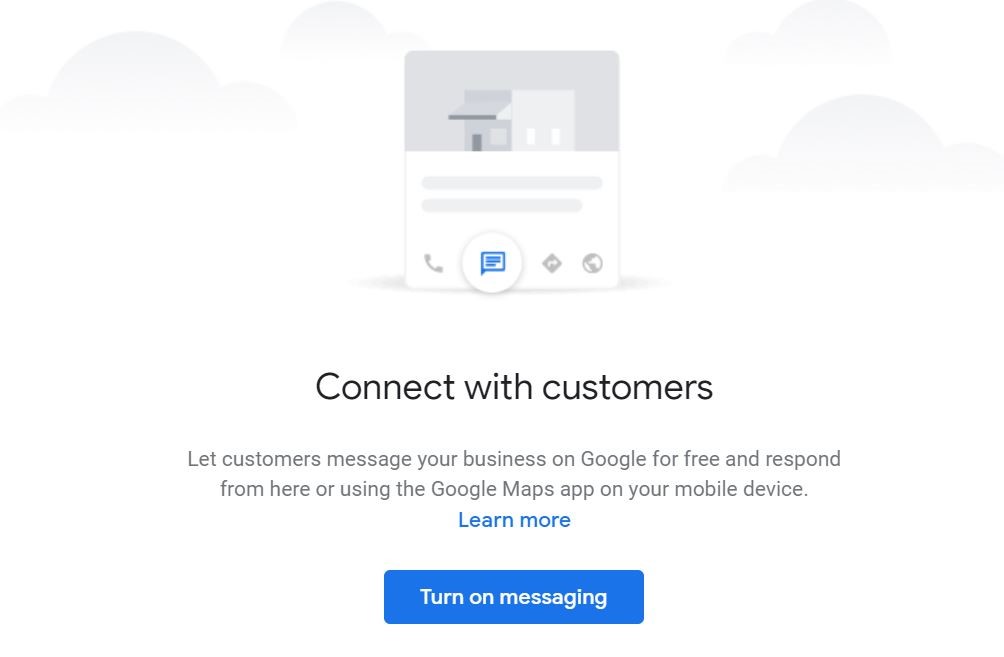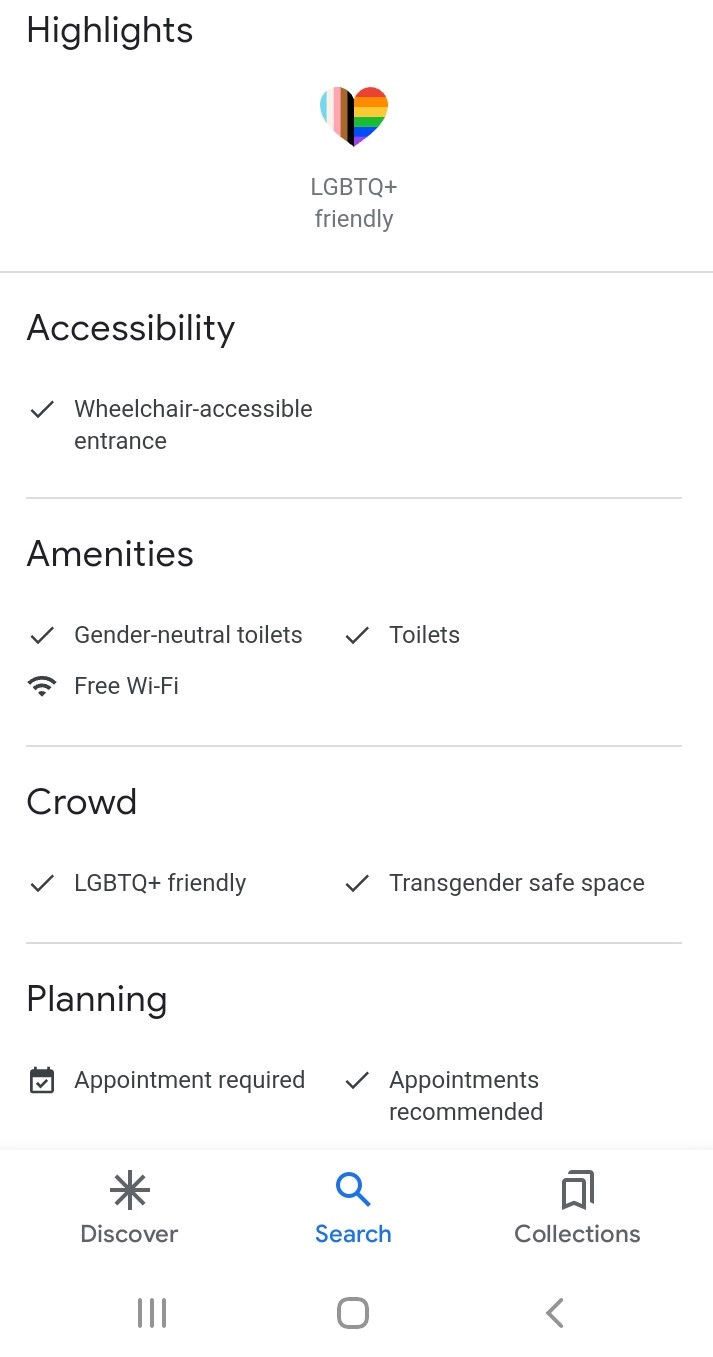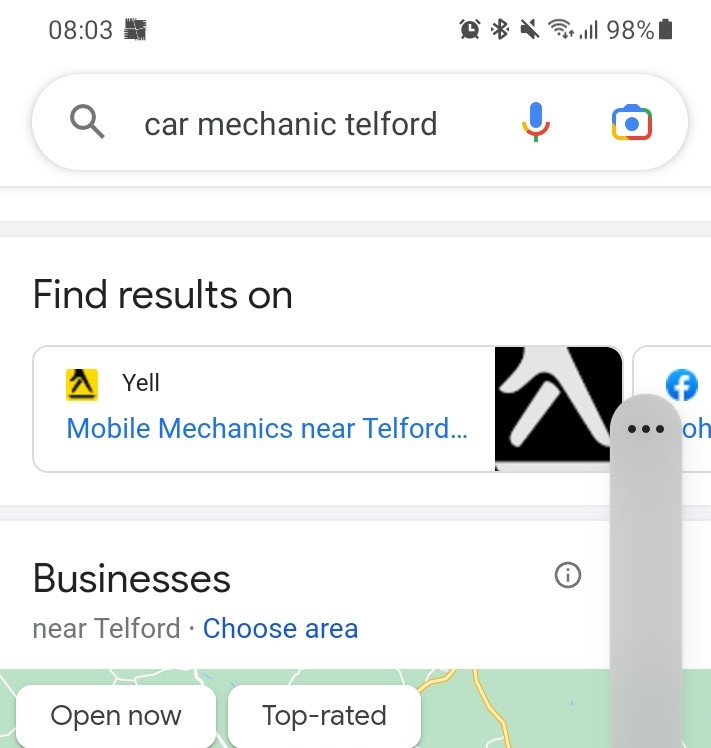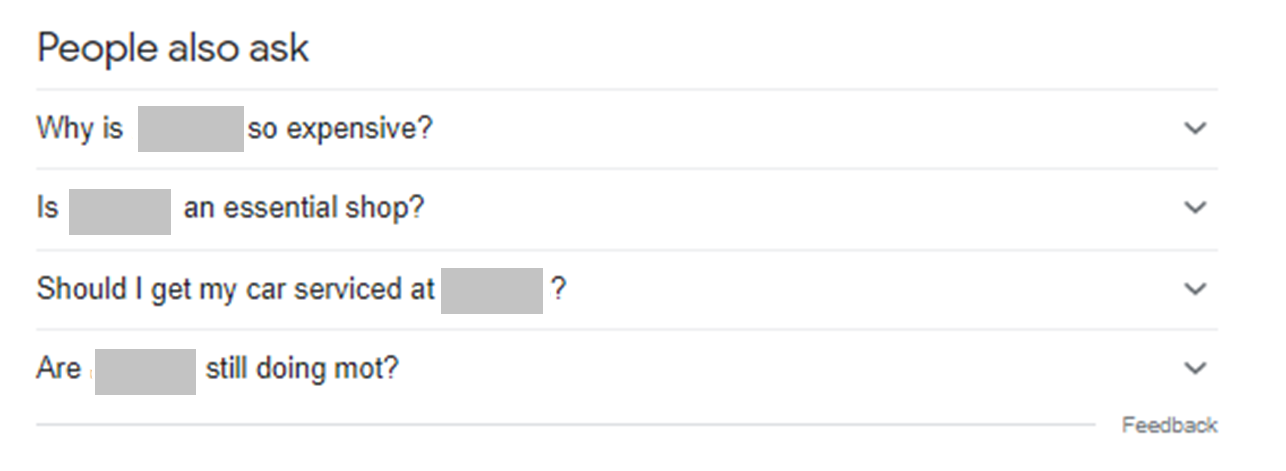7 Ways To Improve Local SEO & Attract New Business
Local SEO differs significantly from standard organic SEO. While traditional SEO focuses on global or national rankings, Local SEO hones in on specific geographic locations, making it crucial for brick-and-mortar businesses. Google’s algorithms for local searches, including the map pack, are distinct from its main organic algorithms. Understanding this difference is key to boosting your local visibility and winning new customers.
1. Leverage Competitors' Google Business Q&As for Insight
One of the most overlooked aspects of local SEO is the potential of Google Business Profile (GBP) Q&A. This feature allows you to directly interact with potential customers while also gathering insights from your competitors’ Q&A sections.
By monitoring the questions asked on your competitors’ profiles, you can preemptively address those queries on your profile, turning potential issues into opportunities. For example, if customers frequently ask about gluten-free options at nearby restaurants, make sure your own GBP highlights your gluten-free offerings.
How GBP Q&A Works
On your Google Business Profile, you may notice an “Ask a Question” button. Once clicked, users are taken through to a screen that allows them to submit a question.
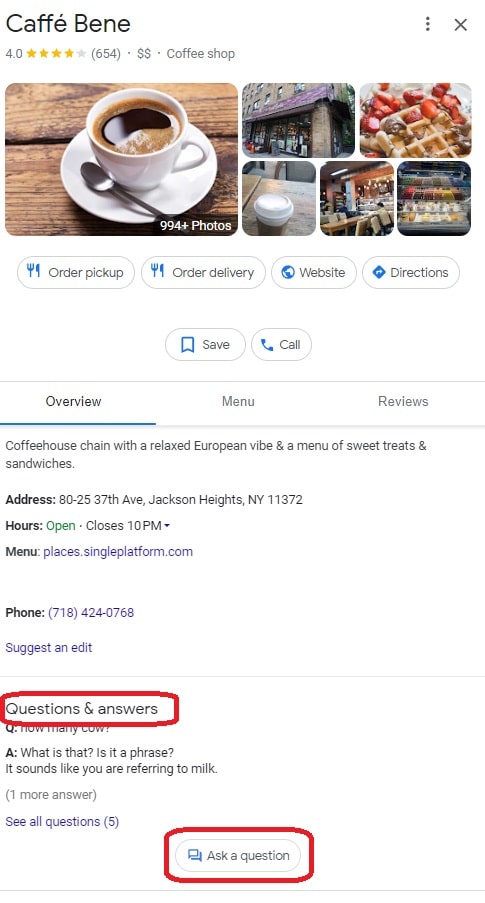
Screenshot from Google Business Profile, December 2023


2. Optimize Google Product Listings for Better Exposure
Google Product Listings in your GBP are a powerful tool for local SEO. These listings appear prominently in search results, both on mobile and desktop, providing a direct link to your products.
Utilizing tools like Google’s “Pointy” can simplify the process of uploading products, especially for businesses with barcode systems. Even if you have to upload products manually, this visibility can drive local traffic, particularly when you tailor your listings to the current season or local demand. For instance, a car repair shop might highlight snow tires just before an unexpected winter storm.
3. Engage with Customers Through Google’s Business Messages
Direct engagement is another critical element of local SEO. Google’s Business Messages feature allows potential customers to message you directly from your GBP listing.
This feature is available across various platforms, including Google Search and Maps. Responding quickly to inquiries can significantly increase your conversion rates, as it shows potential customers that you’re attentive and ready to meet their needs.
How GBP Business Messages Work
🔥 New Alert for GBP Owners! Google Maps’ Messaging Feature Finally Hits Desktop! 💻 Turn it on NOW from your dashboard and start engaging like never before!
Boost Local Business 🚀: Master Google’s Messaging Feature!
💬 Set up an auto-responder to greet new customers instantly.
⏰ Respond within 24 hours—or risk Google deactivating the service! Your response time could show up on Google Search and Maps as “Usually responds in minutes.”
💼 Why This Matters: Skip the phone calls! Let potential customers message you directly from Google Business Profile. Quick replies = higher conversion rates!
🏠 Make It Personal: Use local names, mention events, and show your community love to make your business stand out.
Don’t miss out—start engaging now!
4. 🚨 Stay Ahead with the Latest Google Business Profile Updates! 🚨
Google’s constantly rolling out new features for your Google Business Profile—don’t miss out! Keeping your listing updated with the latest attributes could make your business stand out.
🎯 What’s New? Google frequently adds features that might just be the edge you need. But beware—not every update is for everyone! It all depends on your business category.
💡 Why It Matters Early adopters always win! While these new attributes might not directly boost your rankings, they can make your business more appealing to local customers. Whether it’s showcasing that you’re “women-owned,” “black-owned,” or “LGBTQ+ friendly,” these small details can make a big difference. Inclusivity speaks volumes—and it could be what sets you apart from competitors.
Stay informed and make your business profile irresistible! 💪
5. 🌟 Start Lurking in Local Marketplaces & Forums!
Understanding your local market is vital for successful local SEO. By engaging in local marketplaces and forums, you can gain insights into what your potential customers are talking about, what they value, and what they’re looking for in a business.
For instance, if your town’s Facebook Marketplace is buzzing about locally made crafts, and you sell similar products, you’ll gain valuable insights into pricing and customer expectations. This understanding allows you to tailor your offerings and marketing messages to better meet local demand.
6. Don’t Ignore Bing, DuckDuckGo, and More! 🕵️♂️
Google isn’t the only game in town. Bing and DuckDuckGo are quietly driving traffic to local businesses, and if you’re not there, you’re missing out. DuckDuckGo uses Apple Maps, and Bing has its own map system—both require separate setups from Google.
As these platforms gain popularity, being visible where your competitors aren’t can give you the edge. Especially if you’re targeting regions outside the U.S., these search engines could be your secret weapon to capture local customers.
Stay ahead of the game by optimizing for all the search engines, not just Google!
7. Keep An Eye On Your Reputation: The Secret to Winning More Customers! 🚀
You’re probably already monitoring reviews on TripAdvisor and keeping tabs on your Google Business Profile. But what about the other corners of the internet where your business might be getting discussed?
Why Reputation Monitoring Matters
When potential customers search for terms like [car mechanic Telford], they’re not just seeing your business’s name. The SERPs (Search Engine Results Pages) can show a mix of directory sites, social media mentions, and niche review platforms. This means your business could be evaluated based on sources you’re not actively checking!
The SERP Landscape: What You’re Missing
Check out the search results for:
The top carousel features directories and review sites that could contain reviews or information about your business. These sites might be influencing potential customers’ opinions before they even visit your own website!
People Also Ask: A Hidden Threat
When customers are digging deeper, they might stumble upon the “People Also Ask” section. For instance, searching for [is (name of a mechanic) in Telford any good] might trigger questions like “Why is [brand] so expensive?”
While you can’t control these questions, you can shape the narrative. Create content that directly addresses these queries, emphasizing the quality of your services, the value of your offerings, and the expertise of your team. This way, when someone clicks on those questions, they’ll see your positive response first.
Why This Matters for Your Business
Remember, potential customers are influenced not just by the reviews you monitor but also by the broader online conversation about your business. A negative perception could mean losing out on new customers.
To stay ahead, keep a close watch on the SERPs for your key search terms. Identify and address any negative perceptions before they affect your bottom line. Your reputation is more than just reviews—it’s the complete picture presented online.
Conclusion
Local SEO is an ongoing process that requires regular attention to both your own Google Business Profile and the broader online landscape. By strategically using GBP features, staying updated with new attributes, engaging with customers directly, and monitoring your online reputation, you can ensure your business stands out in local search results. The key is to be proactive and responsive, always ready to meet your customers where they are.
FAQs
1. What is the difference between Local SEO and Organic SEO?
Local SEO focuses on optimizing your online presence for a specific geographic area, while organic SEO targets broader search queries without geographic qualifiers.
2. How often should I update my Google Business Profile?
Regular updates are essential, especially when Google introduces new attributes or features. Aim to review your profile at least once a quarter.
3. Can using Bing and DuckDuckGo really impact my business?
Yes, while these search engines have smaller market shares, they still represent significant user bases, especially in certain regions or demographics.
4. What should I do if I see negative questions about my competitors?
Use this information to improve your own business listing and website. Address potential concerns before customers even ask.
5. How can I measure the success of my Local SEO efforts?
Track your rankings in local search results, monitor the engagement on your Google Business Profile, and measure foot traffic and sales from local customers.
Simple Ways To Optimize Your Website For SEO
Remember: even if the channel you’re considering is all the rage right now, it might not fit your brand. Always make informed decisions that directly relate to your company. Otherwise, your message won’t be delivered to its intended audience and you’ll have wasted time, effort and money.
Know Your Digital Goals
The first step is clearly identifying which goals you want to achieve. Get specific. Do you want to increase brand awareness? Are you all about locking in leads? Do you want to establish a strong network of influencers that can help you be discovered? How about pushing engagement on social media?


Get Specific
A useful tool for narrowing down your goals to ensure they’re viable is the SMART mnemonic. It’s important to get specific to understand exactly what you’re working towards, and help you break down the process of hitting your targets. This is exactly what this mnemonic helps you to achieve.
- Does the channel reach my intended audience?
- Is the channel sustainable and affordable within my company’s marketing budget?
- Will I be able to measure the success of the channel?
- Does the channel allow me to express my brand’s intended message?
- Do the channels I’m considering work together to convey my message?

Always Remember Your Goals!
Establishing a solid vision for your business is the first step to planning your digital marketing budget. Always keep your final goals in sight when organising anything for your company. When deciding which steps to take next in your business, ask yourself how they will help you achieve the goals you outlined in Step #1. This will ensure that you stay on track and prevent you from spending your budget on anything that won’t help you achieve.
Cum et essent similique. Inani propriae menandri sed in. Pericula expetendis has no,
quo populo forensibus contentiones et, nibh error in per.Denis Robinson


